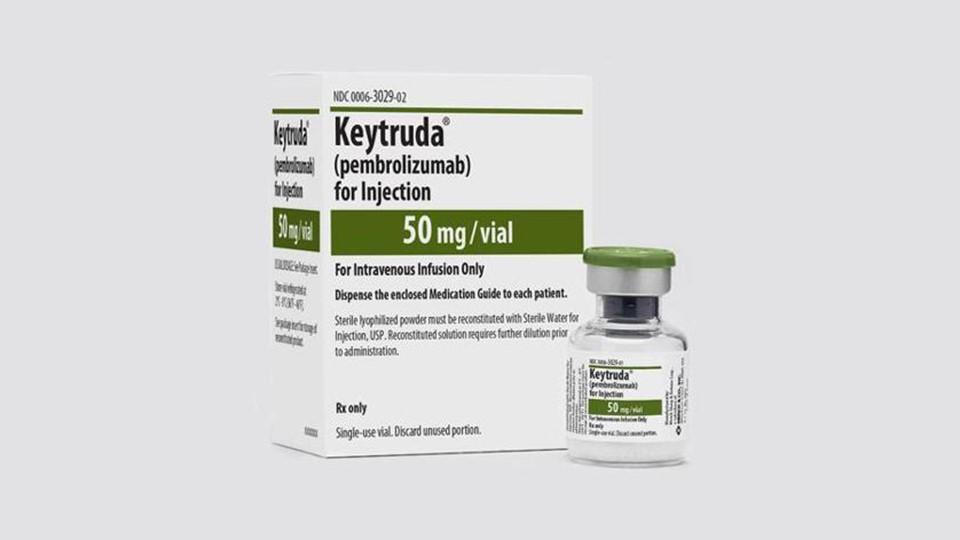Keytruda breaks new ground in cervical cancer

MSD’s checkpoint inhibitor Keytruda has been cleared by the FDA for use in newly diagnosed cervical cancer patients with less severe disease, becoming the first anti-PD-1/PD-L1 immunotherapy for this patient group.
Keytruda (pembrolizumab) has been approved for use in combination with chemoradiotherapy (CRT) for patients with high-risk locally advanced cervical cancer; in other words, those with stage III to IVA disease, according to the FIGO scale.
Cervical cancer is on the decline in the US thanks to screening programmes and vaccination against human papillomavirus (HPV), one of the primary causes, but there are still around 14,000 new cases of invasive disease every year and more than 4,000 deaths.
The prognosis for women with locally advanced cervical cancer remains fairly poor, with a five-year survival rate of approximately 65%, with more than half of patients experiencing disease recurrence within two years.
The approval – Keytruda’s third in cervical cancer – rests on the results of the KEYNOTE-A18 trial reported last year, which showed that adding Keytruda to CRT in these patients extended the time to disease progression or death compared to CRT alone.
The 1,060-patient study (also known as ENGOT-cx11/GOG-3047) involved two cohorts of patients, one with stage III-IVA disease and another with smaller IB2-IIB tumours. There was a statistically significant improvement in progression-free survival (PFS) with Keytruda in the overall population, but analyses showed the benefit mainly stemmed from the III-IVA cohort, so the FDA has limited its approval to that group.
Keytruda is already approved by the FDA as a first-line therapy for PD-L1-positive metastatic cervical cancer in combination with chemo, with or without bevacizumab, and as a second-line therapy after patients with PD-L1-positive tumours have progressed despite chemo.
In Europe, meanwhile, Regeneron’s PD-1 inhibitor Libtayo (cemiplimab) is indicated as a second-line therapy for recurrent or advanced cervical cancer, regardless of PD-L1 expression status, but the drug’s filing in the US was withdrawn after the company was unable to agree with the FDA on post-marketing studies.
The new approval is Keytruda’s 39th in the US, underlining its pivotal position in the emergence of cancer immunotherapy that has driven sales of the drug to well over $20 billion a year. The drug is due to lose patent protection in 2028, however, so MSD (known as Merck & Co in the US) has been working to build its oncology pipeline to absorb the hit of lower-cost biosimilars reaching the market.
Recent bolt-on deals include its takeover of T-cell engager developer Harpoon Therapeutics for $680 million, announced at the JP Morgan Healthcare meeting last week, and an alliance with Daiichi Sankyo on antibody-drug conjugates for cancer that included a whopping $4 billion upfront payment and a top-line value of up to $22 billion.
Other deals that were announced or closed last year included a $10.8 billion buyout of immunological drug developer Prometheus Biosciences, a $1.35 billion takeover of Imago BioSciences and its portfolio of blood cancer candidates, and a $610 million takeover bid for neurodegenerative disease specialist Carraway Therapeutics.













